A full Wigmore Hall always feels special. Formerly we saw a board with the words “HOUSE FULL” on it, in large, bright red capital letters at the entrance. If we had tickets back then, we knew how lucky we were. These days, the 552-seater hall gets booked out far more often, as it was last night. The promise of a programme of Schubert (both of the piano trios composed near the end of his all-too brief life) played by performers including András Schiff had filled the hall.
Schiff was playing a fortepiano (no more information given, but he has been recording Schubert for ECM in recent years on a Franz Brodmann Viennese instrument from 1820) and was working with violinist Erich Höbarth and cellist Christophe Coin, two of the members of the Mosaïques Quartet, the specialist period instrument which has been in existence since 1987.
First the positives: Schiff has said that “it is in the quiet and quietest moments when Schubert – like nobody else – touches our hearts.” And there were indeed moments, particularly in the E flat trio in the second half, when the wisdom of his choice to play on a historic instrument shone through. The second movement of the E flat trio starts with the simplicity of short, repeated C minor triads from the piano. The ineffable lightness which he brought to them was quite stunning, as was the contrast with the progression towards a heavier, darker, more angst-ridden version of the theme as the movement develops. Schubert then brings the theme back in the last movement, with an arpeggiated "raindrop" accompaniment. That too had a particular sense of diaphanous magic and wonder about it.
It is interesting, almost comical, to go back to the Stanley Kubrick Barry Lyndon soundtrack from 1975, where the second movement from the Schubert E flat Trio is prominently featured, and to listen to the opening of Schubert as played by Anthony Goldstone and Moray Welsh. That was a very different world. Nearly 50 years on, the way they played then feels like a very heavy trudge, and makes one appreciate all the more the lightness and airiness which Schiff can conjure from a fortepiano.
The problem last night was that such moments of transcendence were all too brief and infrequent. Something really was not going right at all in the B flat Trio which made up the first half. The string players appeared to be having frequent intonation problems – and Schiff was giving particularly heavy accents in the left hand which occasionally just sounded more like a sign of petulance than any kind of attempt to illuminate the context.
There are so many performances of these works which have brought to the fore the continuity, the levels of melodic invention and the genius of these works (David Nice reviewed one such previous evening at the Wigmore Hall). The trio did find more persuasive ways to elucidate the emotional contrasts of the E flat trio than they had with the optimism of the B flat trio, but, for example, the habit or tic which both string players have, to clip the ends of phrases wasn’t helping to develop any sense of the wonderful flow, grace, charm and depth of these two masterpieces.
Louis Armstrong used to say that when he was not satisfied with the band on stage, “I just turn up the volume of the band in my head." On this occasion that might be the glorious recent recording by the much-missed Lars Vogt and the Tetzlaff siblings, which has everything one could want. This concert was a disappointment.



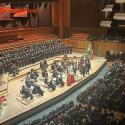






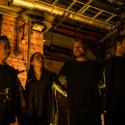
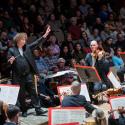
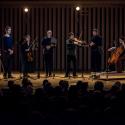
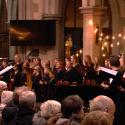
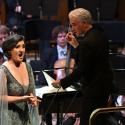
Add comment